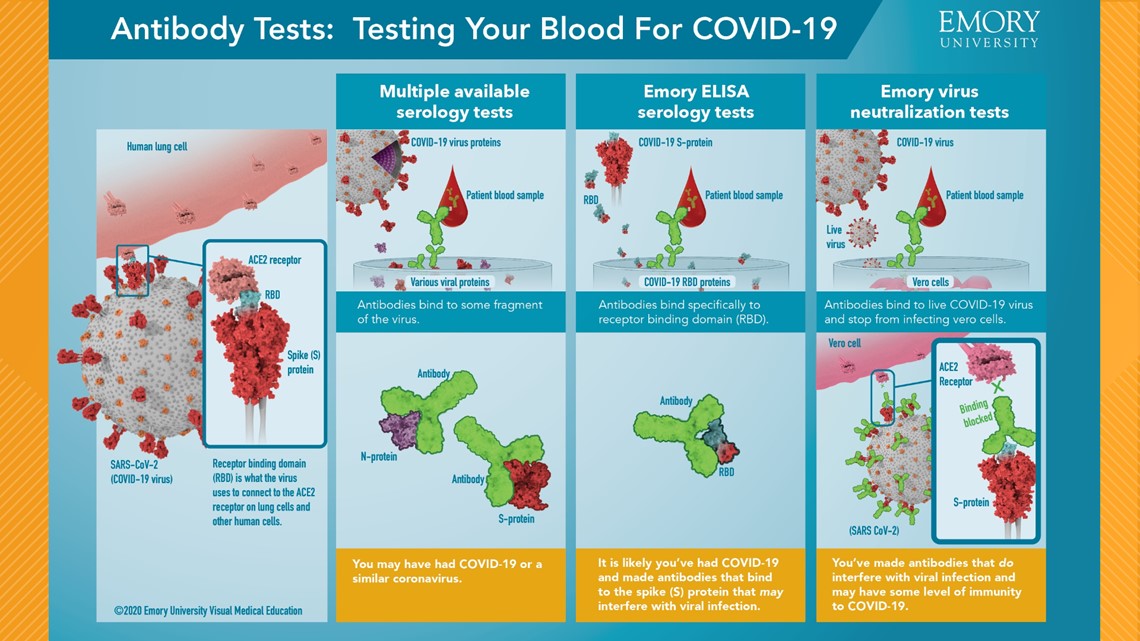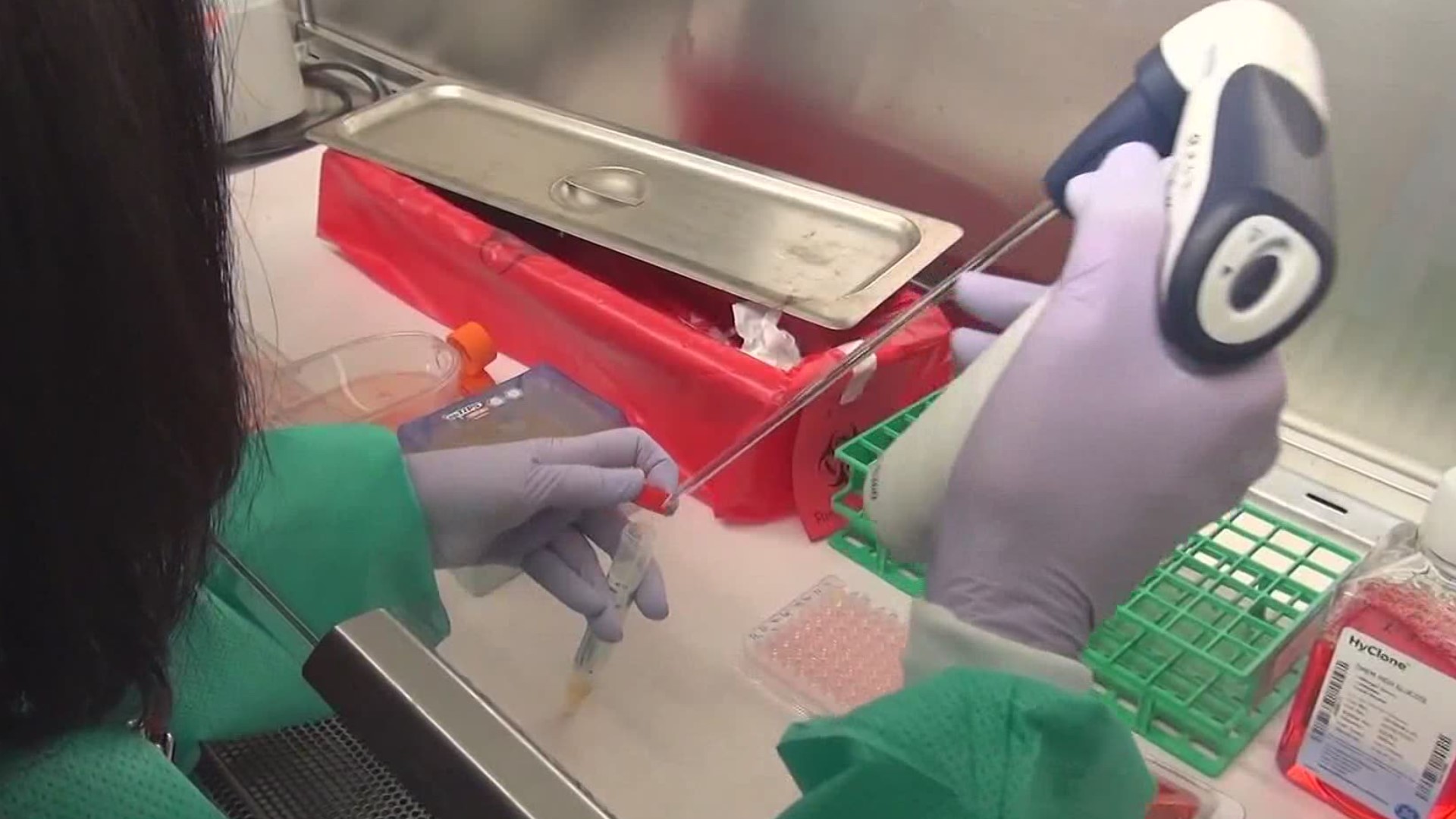ATLANTA — Emory University researchers have made a major advance in the study of coronavirus antibodies, along the way helping develop a test that could more accurately pinpoint those with actual immunity.
The research specifically examined virus-neutralizing antibodies, as opposed to antibodies that may provide no future immunity to the novel coronavirus.
These virus-neutralizing antibodies bind to the coronavirus' signature spike protein - a receptor-binding domain which works to eventually cause the infection and, as it sounds, looks like a spike jutting out of the virus.
Researchers call the spike the Achilles' heel of the virus.
The antibodies then also bind to human cell receptors, interfering with viral infection and indicating a level of immunity. The Emory researchers helped develop a test for antibodies exhibiting this specific dynamic.
An existing antibody test developed by Emory, known as ELISA, only tests if the antibody binds to the spike. And other, more common tests indicate only if the antibody binds to some part of the virus.
The other kinds of tests can indicate whether you've already had the virus and whether your antibodies might interfere with infection, but not whether you're truly immune.


"It really is truly the wild wild west out there for antibody testing," study co-lead author Jens Wrammert of the Emory Vaccine Center told 11Alive's Maura Sirianni. "Through this research effort our team at Emory was able to show that this test was reliable."
Doctors said the test works to help researchers understand how to block the spike and therefore stop the infection from growing
"These findings are key to our understanding of protective immunity to the virus," said Mehul Suthar, an assistant professor at the Emory Vaccine Center.
According to the Emory news site, Wrammert believes "the information about RBD-specific antibodies helps inform vaccine development since scientists could test the blood of vaccine study participants for the RBD-specific antibodies, as a gauge of predicted efficacy."
The research also found that nearly all hospitalized patients develop these virus-neutralizing antibodies within six days. And it could, a release said, "help determine whether convalescent plasma from COVID-19 survivors can provide immunity to others, and which donors' plasma should be used."
11Alive is focusing our news coverage on the facts and not the fear around the virus. We want to keep you informed about the latest developments while ensuring that we deliver confirmed, factual information.
We will track the most important coronavirus elements relating to Georgia on this page. Refresh often for new information.
MORE CORONAVIRUS HEADLINES

